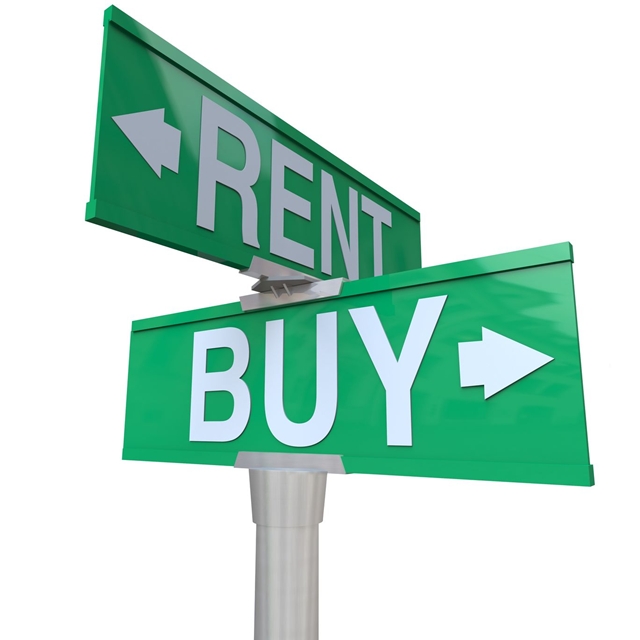Should I rent or buy a home? This question has been troubling a large demographic of the population, first-time buyers, downsizers and several different walks of life for years as they ponder what to do or attempt to enter the real estate market. We have put together this blog post to help clarify the pros and cons of both outcomes and to assist you in moving forward when you are ready to rent or buy a home.
As home prices rise throughout Guelph and Wellington County, so do rental prices, as the demand is in place with the low vacancy rate supporting that. Making the decision to rent or buy a home will coincide with your financial situation, the amount of responsibility and commitment you are willing to take on, your long term goals, career, and much more. We advise you to speak with your local Guelph Realtor before making the leap into homeownership or being a tenant.
Advantages of Renting:
- Not a lengthy commitment
- Fewer costs for maintenance of the residence
- Less responsibility
- Opportunity to try out different neighborhoods before buying a home
- Few, if any, unexpected costs
- Ability to invest savings in markets, or live on a tighter budget without equity being tied up
- Rent control
Disadvantages of Renting:
- The landlord might not be ideal and hard to work with – beware of scammers too!
- Paying someone else’s mortgage
- Less opportunity to modify or customize the rental unit
Advantages of Buying:
- Building equity in your property
- Forced savings
- Value of your home may appreciate
- Full control of your own property
- Paying your own mortgage vs. paying someone else’s mortgage
- Outlet for reflecting effort and morale
- Opportunity to use equity later to expand real estate portfolio or invest elsewhere
Disadvantages of Buying:
- Must have downpayment – minimum 5%
- Committed to paying monthly expenses (mortgage, insurance, water, gas, hydro, property taxes, repairs, maintenance, condo fees, etc.)
- More responsibility
- Potential for more financial sacrifices with unexpected issues that may arise

With the year-to-date average sale price in Guelph climbing to $532,777 in June 2019, homeownership has been hard to attain. One of the biggest factors of your decision will be based on if you can afford a downpayment for your home. As mentioned above, you will need a minimum of 5% of the purchase price as your downpayment – that’s $26,639 you will have to come up with if you are purchasing a home, priced at $532,777. Keep in mind, there are a lot of homes for sale that are under the average sale price but the 5% is a minimum downpayment that is mandatory. Staying with this example, this means if you put 5% down, your mortgage will be $506,138 (plus the applicable mortgage insurance premium) and will be about $2,400 per month depending on the terms and rate you get. Don’t forget about all the other expenses on top of your mortgage – insurance, water, gas, hydro, property taxes, repairs, maintenance, condo fees, etc.
The average rental cost in Guelph is approximately $2,000 a month, +/- utilities. Using that average, you are roughly paying $24,000 per year +/- utilities to rent vs. $28,800 per year + homeownership expenses to own. As you can see, there is a big difference in expenses when you are a homeowner, but you are paying off the principal amount of your mortgage and building equity throughout your time of ownership. This means that the money you pay towards a monthly mortgage payment works like a fixed savings account whereas the monthly rent you pay is gone towards someone else’s mortgage. Rentseeker’s Rent Vs. Buy Calculator can help you with a cost comparison of the two.
Some key takeaways from this post are that saving up for the minimum downpayment and paying additional monthly costs associated with being a homeowner can be difficult, particularly when simultaneous with paying a monthly mortgage, but you build equity in your home and have the opportunity to have an asset that appreciates over time. If you do decide to rent, you will have less responsibility, commitment, and customization in the home, and more flexibility to change locations but your money goes towards someone else’s investment/mortgage.

